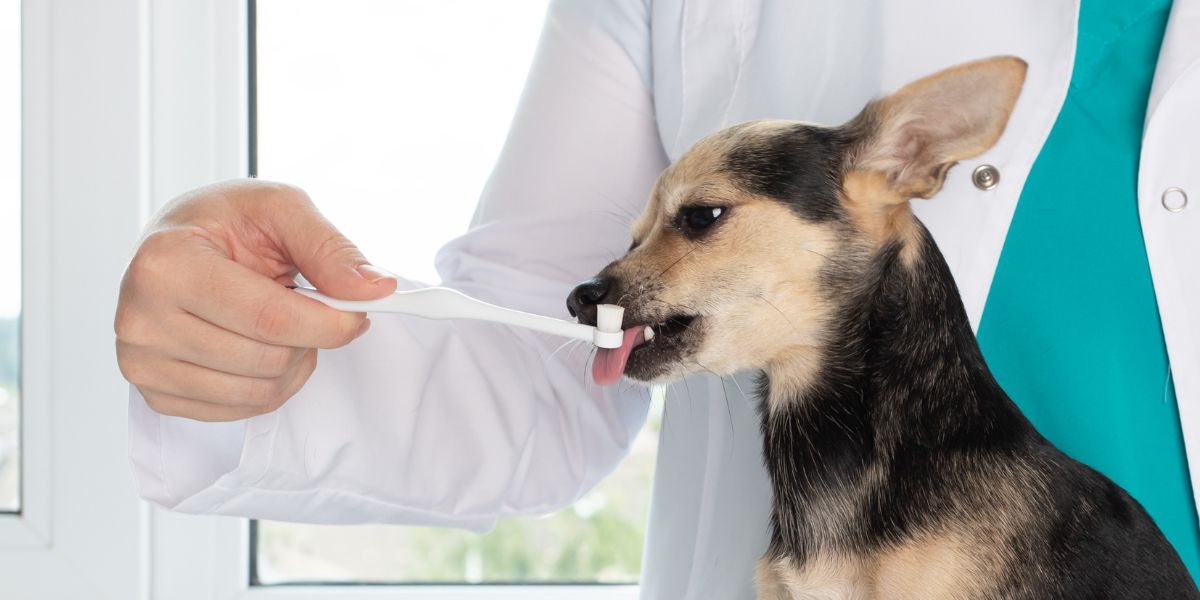
Ensuring your pet's oral health is essential for their overall well-being. From brushing techniques to selecting the right dental treats, there are key practices to follow. But have you ever wondered about the lesser-known factors that could impact your pet's dental health? Keep reading to discover some surprising tips that can make a significant difference in maintaining your furry friend's bright smile and healthy mouth.
Importance of Pet Oral Health
To ensure your pet's overall well-being, maintaining good oral health is crucial. Just like humans, pets can suffer from dental issues that not only cause discomfort but can also lead to more serious health problems if left untreated. Poor oral hygiene in pets can result in plaque buildup, gum disease, tooth decay, and even infections that may affect other organs in the body. By prioritizing your pet's oral health, you can help prevent these issues and ensure they lead a happy and healthy life.
Regular dental check-ups with your veterinarian are essential to catch any potential problems early on. Your vet can perform cleanings, check for signs of periodontal disease, and provide guidance on how to care for your pet's teeth at home. Additionally, a proper diet and chew toys can help reduce plaque and tartar buildup, promoting better oral health for your furry friend. Remember, a healthy mouth means a healthier pet overall.
Brushing Techniques for Pets
Maintain your pet's oral health by mastering effective brushing techniques. Brushing your pet's teeth is essential for preventing dental issues. Start by using a pet-specific toothbrush and toothpaste to avoid any harm. Introduce the toothbrush and paste gradually to allow your pet to get used to the process.
Hold the brush at a 45-degree angle and gently brush in circular motions. Focus on the outer surfaces of the teeth where plaque tends to accumulate. Be patient and offer rewards to create a positive association with brushing. Aim to brush your pet's teeth at least 2-3 times a week for optimal results.
When brushing, pay attention to your pet's body language. If they seem uncomfortable or resist, take a break and try again later. Regular brushing will help maintain your pet's oral hygiene and prevent dental issues down the line. Remember, consistency is key to successful brushing, so make it a part of your pet's routine.
Choosing the Right Dental Treats
When selecting dental treats for your pet, consider their size and texture to ensure effective oral care. Opt for treats that are specifically designed to promote dental health, such as those with ridges or grooves that help reduce plaque and tartar buildup. The size of the treat should be appropriate for your pet's breed and size to prevent choking hazards. Additionally, choose treats that are firm enough to provide a good chewing challenge but not so hard that they could damage your pet's teeth.
Look for dental treats that are approved by veterinary dental associations to ensure they meet quality and safety standards. Avoid treats that are high in sugar or contain artificial ingredients that could be harmful to your pet's overall health. Some dental treats are formulated to freshen your pet's breath while also cleaning their teeth, providing a dual benefit.
Remember to monitor your pet while they enjoy their dental treats to ensure they're chewing safely and not experiencing any issues. By selecting the right dental treats, you can help maintain your pet's oral health in between veterinary check-ups.
Schedule for Veterinary Dental Check-ups
Regular veterinary dental check-ups are essential for monitoring your pet's oral health. It's recommended to schedule a dental check-up with your veterinarian at least once a year. However, some pets may require more frequent visits based on their age, breed, or existing oral health issues.
By establishing a routine schedule for dental check-ups, you can identify and address any potential problems early on, preventing them from escalating into more serious issues.
During these check-ups, your veterinarian will conduct a thorough examination of your pet's mouth, teeth, and gums. They may also recommend professional cleanings to remove any plaque or tartar buildup that regular brushing can't address. Additionally, your veterinarian can provide guidance on proper at-home dental care practices tailored to your pet's specific needs.
Signs of Dental Problems in Pets
If your pet is experiencing dental problems, watch out for signs indicating potential issues with their oral health. One common sign is bad breath, which can indicate the presence of bacteria or dental disease in your pet's mouth.
You may also notice red or swollen gums, bleeding from the mouth, or reluctance to eat hard foods. Pets with dental problems may paw at their mouth, drool excessively, or show signs of discomfort when chewing. Additionally, visible tartar buildup on the teeth, loose or missing teeth, or changes in your pet's behavior such as increased irritability can all point to dental issues.
Keep an eye out for any changes in your pet's oral health and behavior, as early detection of dental problems can prevent further complications. If you notice any of these signs, it's essential to seek veterinary care promptly to address the underlying dental issues and ensure your pet's oral health is properly managed.




